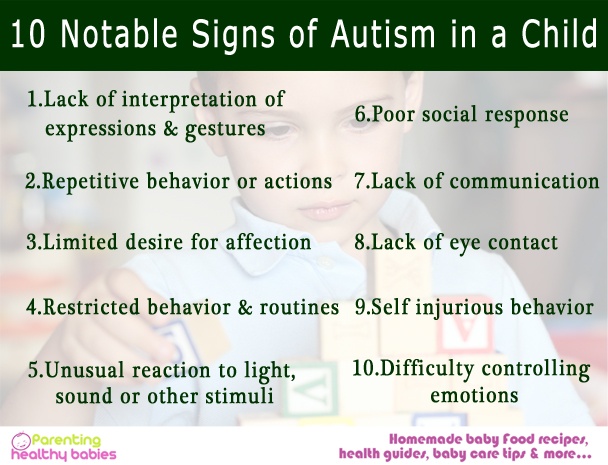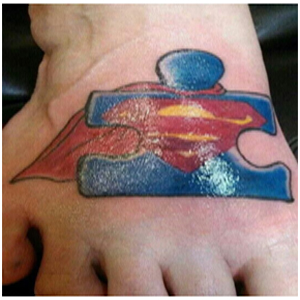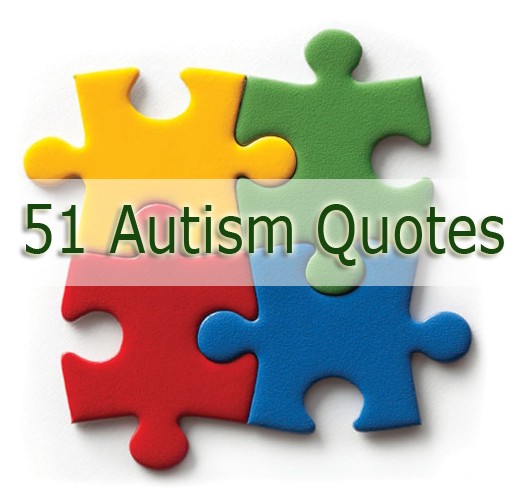Poor social response, lack of communication, lack of eye contact, limited desire for affection, difficulty controlling emotions, self injurious behaviour, repetitive behaviour or actions, lack of interpretation of expressions and gestures, restricted behaviour and routines and unusual reaction to light, sound or other stimuli are early signs of autism in a child.
Every child goes through a sequence of development. This involves specific milestones such as speaking, crawling, babbling and later talking and walking. However, some babies and children do not follow this pattern of development. There could be multiple reasons for developmental delays in children and one such cause in autism or autism spectrum disorder (ASD).
What is Autism?
Autism is a disorder of the brain usually detected in infancy or childhood. Autism has a genetic basis. However, rubella infection in a pregnant mother or exposure to certain drugs or chemicals during pregnancy may also contribute to the risk of developing autism. Autism is a lifelong disorder. Its effects range from mild to moderate to severe.
Read More: 51 Autism Quotes
10 Notable Early Signs of Autism in a Child
It is possible to catch autism early in life. As a parent, you are in a position to observe your baby or child’s behavior on a daily basis. The following warning signs can help you look out for developing autism traits in your child.
1. Poor social response
Babies and children, in general, invite social interaction with people around them. They enjoy playing games and interacting socially with others. In response to social interaction, babies laugh, babble, make noises or show their involvement. A baby with autism does not interact much with parents and will seem aloof and disconnected. Autistic babies will not smile, laugh or enjoy social communication to the same degree as other children.
Read More: 7 Home Treatments for Autism
2. Lack of communication
If by 12 months of age, your baby does not babble or make baby sounds and does not make gestures, autism may be suspected. Alternatively, a baby who does not begin to speak by 2 years of age, is also experiencing developmental delay typical to autism.
3. Lack of eye contact
Babies generally maintain eye contact with their mother or parents, especially during feeding or playing. Babies suffering from autism do not maintain eye contact and avoid engaging the attention of their mother.
4. Limited desire for affection
Generally, babies and children love to be cuddled and hugged. A child with autism does not want physical touch, cuddling or hugging. A baby with autism will not reach out his arms to be picked up or display signs that he/she wants physical attention from parents.
5. Difficulty controlling emotions
A child with autism is easily frustrated and unable to manage his/her emotions effectively. Thus children with autism often resort to aggressive behavior or crying, to vent their emotions which they are unable to understand or regulate.
6. Self injurious behavior
A child with autism is easily frustrated and often indulges in self – harming behavior such as head banging, self hitting and self biting or hair pulling.
Read More: 6 Ways to Discipline Your Child
7. Repetitive behavior or actions
A child with autism may display peculiar repetitive behavior such as flapping hands, repeating words, jumping or rocking. This behavior is repeated over and over again, for no apparent reason. They may also repeat a word they hear, again and again.
Read More: 8 Treatment Therapies for Autism in Children
8. Lack of interpretation of expressions and gestures
A child with autism typically lacks understanding of social cues and actions. This means a baby or child with autism does not understand the usual facial expression, body language and tone of voice of another person. Thus, they miss out on social cues such as a smiling face is welcoming or a non smiling face is not welcoming. They tend to speak in a flat, cold tone without the usual range of tonality in speech. Sustaining a two-way conversation is tough with an autism – affected child. This is because they do not understand or respond to conversational cues and interpret others’ viewpoint only to a limited extent.
9. Restricted behavior and routines
A child with autism shows adherence to a rigid pattern of activities or routine and is upset if this is disturbed. He/she may show a lot of attachment to certain toys or objects, wish for a particular order of room furniture, take a particular route to school every day or show preoccupation with numbers or facts. This may be a coping mechanism for the child to deal with stress and stimuli of the world around him/her.
10. Unusual reaction to light, sound or other stimuli
A child with autism reacts unusually to stimuli such as sound, light or touch as compared to other children. Certain sounds or stimuli may upset the child and it may become difficult to make him/her calm down.
Read More: 11 Natural Remedies for Treating Mood Disorders in Children
Understanding and detecting autism can be a tough challenge for anyone. As a parent, you are in a unique position to observe your child and pick up on any possible developmental delay such as delayed speaking, lack of social interaction and rigidity in behavior. These are the key features of autism or autism spectrum disorders.
The sooner autism is diagnosed; the earlier intervention can be instituted to help the child right from the start. Autism is not treatable, but can be managed very well if therapy is started early in life. Autism inflicted children may also function well at school since they do not always lack intelligence. As a parent, do not give up hope if you suspect autism in your child. Act early and with positive thought and determination, seek help for your child from a special educator or child counselor.
Read More: Can Fever during Pregnancy lead to Autism?




